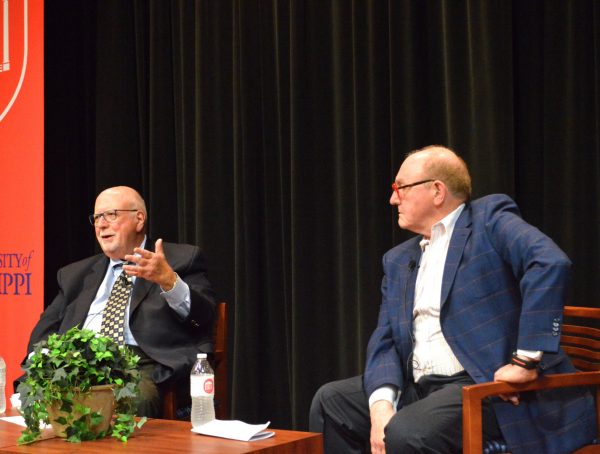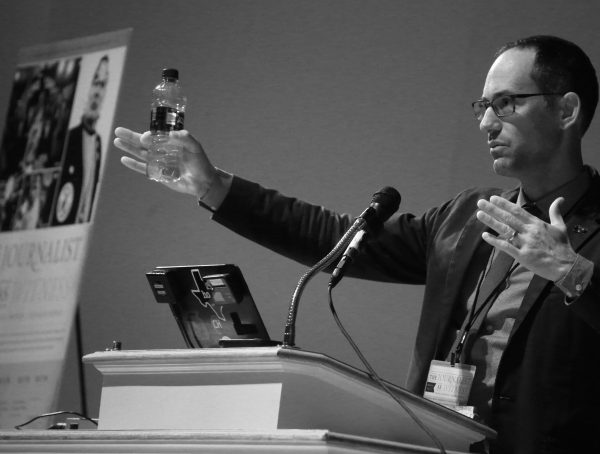 I know this is a touchy subject. Maybe I’d be smarter to leave it alone. But a piece in the new issue of the Ryerson Review of Journalism and a recent exchange I had with a freelance photojournalist have me thinking again about this apparently age-old question: is staging ever acceptable in TV news?
I know this is a touchy subject. Maybe I’d be smarter to leave it alone. But a piece in the new issue of the Ryerson Review of Journalism and a recent exchange I had with a freelance photojournalist have me thinking again about this apparently age-old question: is staging ever acceptable in TV news?
First, the recent shoot. Whenever I’m working with a camera crew I haven’t met before, I try to make sure we’re on the same page before we get started. Many freelance crews handle a wide variety of video assignments, including PR shoots and commercials, and it may have been a while since they shot for a news outlet. So I usually say something like, “We’re doing a news story, so let’s not ask people to do things for the camera,” and that’s often reminder enough. But not always.
I’ve grown accustomed to having to repeat myself–the habit of directing people appears to be hard to break. I haven’t had too many knock-down-drag-out fights, though, most likely because freelance crews generally aim to please–and to get hired again. But I have gotten some push back. Eye rolling, on occasion. And, most recently, a snarky remark that I must be “one of those reporters.”
What kind would that be? Well, not the kind of reporter that journalist Tibor Krausz wrote about after covering last year’s flooding in Bangkok.
One recent morning a British television station’s local correspondent stood knee-deep in water speaking to the camera. A few yards away, several Thais stood, unmoving, on a small embankment of sandbags, gazing pensively at their feet. These locals, the foreign reporter explained, were faced with a daunting challenge: whether they should dare to cross to the other side of a small alley covered in water. Off camera, boys and girls splashed about, laughing and smiling, in the flood, while other locals, wearing plastic flip-flops or rubber wading boots, went about their business. Once the foreign journalist had said his piece on camera, he turned to the Thais standing on the small sandbags and thanked them for their cooperation.
When I read that, all I could think of was this infamous video from NBC’s Today Show.
True, neither of these examples rises–or rather, sinks–to the level of the Dateline NBC debacle almost 20 years ago, when the network admitted it had put incendiary devices in Ford GM trucks to make sure they would catch fire in a crash test, “a bad idea from start to finish.” Also, entirely unethical.
The NPPA Code of Ethics is pretty clear about staging. It’s not OK. “While photographing subjects do not intentionally contribute to, alter, or seek to alter or influence events,” the code reads. Reporter and TV producer Wolfgang Achter is clear about this, too. He told the Ryerson Review that staging happens because of sloppiness or laziness.
Sloppiness meaning they missed something because they weren’t paying attention, and laziness because they weren’t willing to spend the time to find something occurring naturally.
I’m well aware that others have their own definition of staging and don’t believe it’s always wrong. Trisha Doyle, who has worked for ABC and CBS, told the Review there’s nothing wrong with getting the video you need for editing, even if it doesn’t happen spontaneously.
Is having somebody walk down a hall staging? I don’t know. I imagine if the person walks down a hall on a daily basis, then it’s kind of a way to help the editing process…I think audiences are pretty sophisticated and know when we have somebody walk down the hallway, that’s just an editing tool that is used.
Maybe. But our audiences also know that staged footage of people walking down hallways is not real or true. And isn’t that what journalism is supposed to be about? We’re not in the video business, we’re in the news business. And yes, there is a difference, or there ought to be. As Achter puts it, “Anybody who stages always has excuses, okay? And they’re all bullshit.”
Fire away.
(Post corrected 5/22/12 to refer to GM trucks not Ford.)









9 Comments
This continues to be an absolutely necessary question. I’m a teacher, and I run into staging all the time with my students, and they ask good questions about it. Years ago in reviewing a story after a student-reported newscast, we watched a story about a boy who had drowned in a state park the day before. The reporter had a great shot of a sneaker swirling in an eddy caused by the conduit in which the boy drowned. We congratulated him on it and he said, “Oh, we saw the shoe on the bank and threw it in.” Groans all around. Clearly a violation. (We told him, “Just say in your story that you threw in a shoe to show the power of the whirlpool.”) But, how about going out to a farm to shoot a story about a problem with cattle? We interview the farmer in his kitchen because it’s cold outside. And then we say, “Can we go out to see the cows?” Is that staging? If the cattle aren’t in the pen, but he calls them in or rounds them up, is it? Is it okay to ask an author to type on the computer so we can get it? He would normally do that if we hadn’t interrupted his day, but he’s not doing it now, and he’s not going to do it until we leave. All we really have is him sitting there answering our questions. In fact, isn’t interviewing really staging? I’m playing devil’s advocate, but I get these questions now and then. I wish I got them more, frankly.
Is setting up lights for an interview staging? Is moving a chair into the middle of the room for an interview staging? How about getting a two shot? Getting cutaways during a press conference and using them at another spot in the pkg? Like it or not, everything we do is staging. As long as you don’t recreate an event or ask someone to do something they normally wouldn’t do it is ok.You staging purist are like Scalia and his texualism.